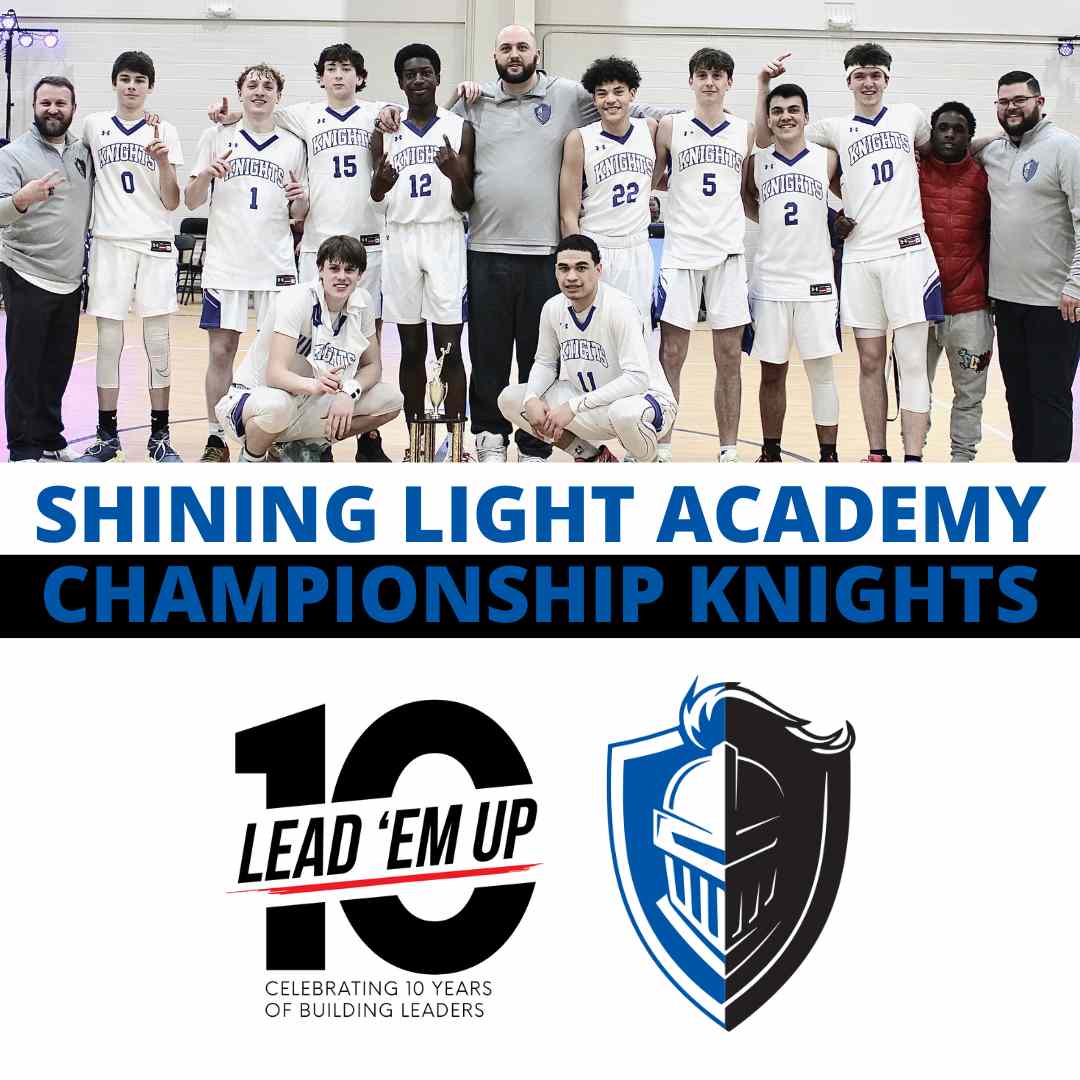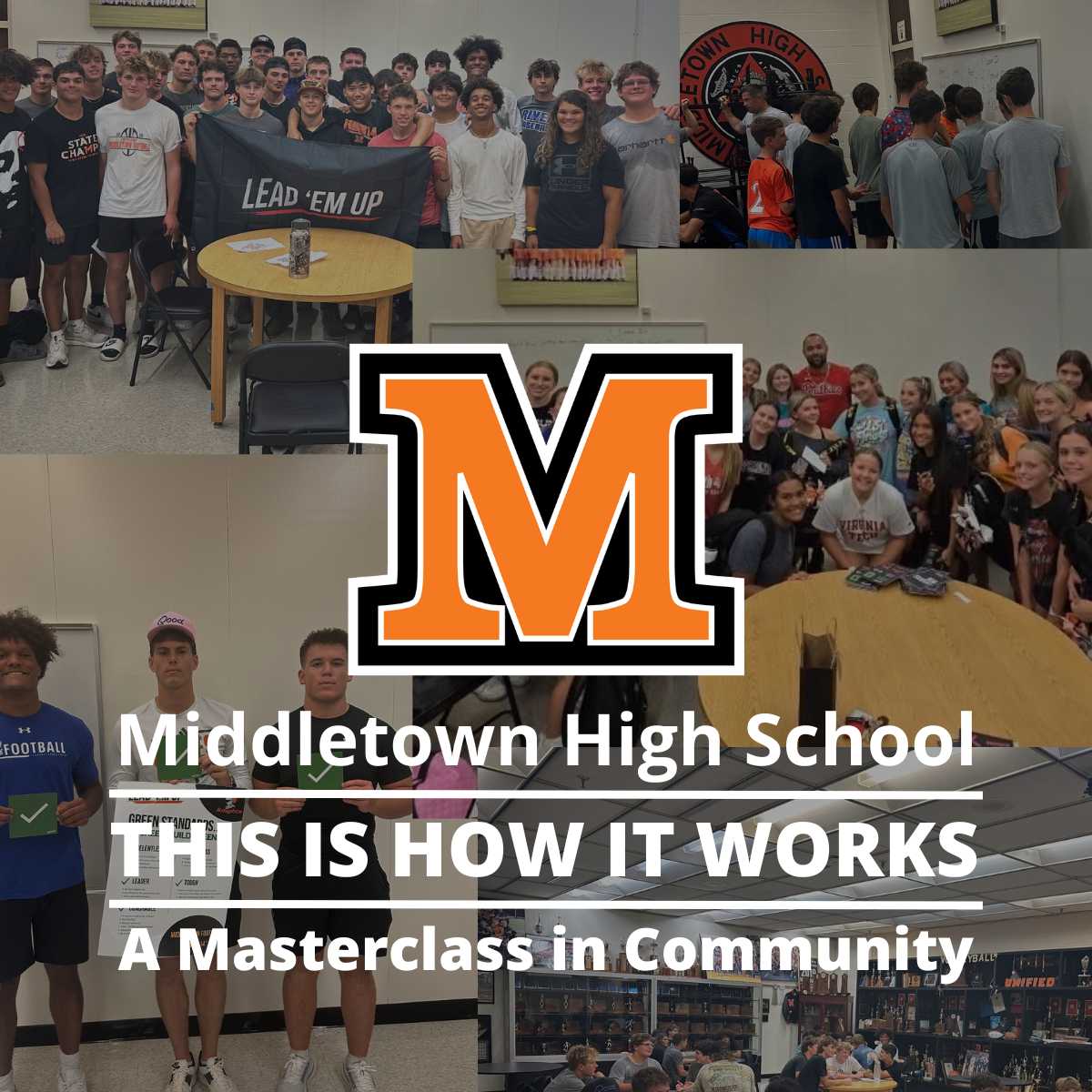Home / Blog / Spotllight /

For ten years, Lead ‘Em Up has been a cornerstone in developing not just athletes, but true leaders and cohesive teams. As we celebrate our 10-year anniversary, we’re looking back at some of the championship teams that exemplify the power of culture and leadership. First up in our “Decade of Champions” series is the Shining Light Academy Boys Basketball team, whose 2023 victory was more than just a trophy – it was a testament to the power of unwavering culture and intentional leadership, deeply influenced by Lead ‘Em Up. Their story offers valuable insights into effective high school basketball team leadership.
The Unmatched “Green Lifestyle”
According to Coach Kaleb Money, the 2023 championship season was the second in what became a three-peat, but it stood out for its unparalleled team dynamic. “The strength of our culture that season was due to the fact we had really impactful players with major roles that were returning,” shared Coach Kaleb Money. They learned a crucial lesson from the previous year: the importance of “building green”, a Lead ‘Em Up concept emphasizing unity and collective understanding.
“Thankfully, we were still talented enough to win in 2022, but 2023 had a green lifestyle that has been unmatched in our program since then,” Coach Kaleb Money emphasized. This commitment was measurable: “That season we had 5 players receive green verification, and that’s still a program record.” For Shining Light, putting an emphasis on culture above all else was the cornerstone of their success.
“Everyone Cared About the Culture”
The players echoed their coach’s sentiments, highlighting how deeply embedded the culture was within the team. Jordan Pyke, the team’s MVP, noted, “What stands out most about that year for me is I think that everyone was holding their own. I think everyone cared about the culture and enforced the culture and also helped show the underclassmen what leading looks like.” This wasn’t a top-down mandate; it was a collective responsibility that significantly bolstered their high school basketball team leadership.
Zach Evaro, then a freshman, vividly recalled the profound impact of the team’s relationships. “What stands out the most to me would be the relationships that we had on this team, from the starting five to the back of the bench, everyone loved everyone the same. I felt like we were brothers going to battle every single night, and I never had any doubt about that, win or lose,” Zach shared. This deep bond, cultivated through intentional culture-building, was the team’s secret weapon.
The “6 Program” and the Power of Accountability
When asked about specific Lead ‘Em Up exercises, both coaches and players quickly pointed to the “6 Program.” This initiative fosters accountability and trust, creating a support system where every player has someone looking out for them. “My favorite Lead ‘Em Up exercise or idea would have to be having a ‘six’ because it allows your team to have someone there for everybody,” Jordan Pyke explained. “Everybody has a person who will check in to make sure you’re doing all right and just be there for you.”
Amon Griffin, the team’s MVG winner, highlighted how this structure promoted doing the “little things.” He recalled an exercise where players sent their “6” a picture of their made-up bed. “It helped me succeed by teaching me to do the little things in life that may not seem like something important at first, but in the long run, it helped our team establish the fact that we needed to do whatever it took to win,” Amon said.
Coach Kaleb Money also praised the “6 program,” noting, “Guys really buy into the accountability and trust aspects of that. They love competing together as 6’s in various ways throughout the season.” Other memorable exercises included “Hype Battle,” which brought out incredible energy from the team, and “The Toaster,” which helped the team refocus after a tough stretch of losses. These exercises were instrumental in refining their high school basketball team leadership on and off the court.
Culture: The Championship Differentiator
The consensus among the team was clear: without their intense focus on culture and leadership, a championship wouldn’t have been possible. “To a certain degree, our team was talented, however, having everyone on the same page allowed us all to communicate well with each other and hold each other accountable without it being awkward,” Jordan Pyke stated. “But no, I don’t see us winning states without the level of accountability that Lead ‘Em Up promotes.”
Zach Evaro, reflecting on the feeling of accomplishment, put it simply: “I do not [think we would have had the same level of success], because I feel like it would have been a different feeling at the end of the season. Also, the level of accomplishment would have felt different due to our not solving the off-court issues, even if we succeeded on the court. A championship is nice, but if we don’t feel like we won the championship as a team. It’s not a championship in my eyes.” This emphasizes that true success extends beyond the scoreboard.
For Amon Griffin, the “green team” mentality meant everyone’s value was recognized. “We had 2 guys on our team who could easily score 30 points per night. But Lead ‘Em Up teaches us that everyone on the team has value. But by being a ‘Green Team’, we were able to achieve success fully as a team.”
Stepping Up as Leaders
The championship season also fostered individual growth and leadership. Amon Griffin, despite being the 6th man, embraced a new role. “Being a leader made my character grow stronger, and I felt confident going into my senior season when I would be one of the only returning players on the team,” he shared.
A powerful moment of leadership from the season stands out to Coach Kaleb Money: “There was a moment where our team MVG winner, Amon Griffin who was a junior, had given some leadership assists during a team meeting and our team MVP, Jordan Pyke, stood up and ‘thanked the passer’ for his courage to call out some seniors on some things. Jordan speaking up and backing up what Amon had to say set the tone for the rest of the team,” Coach Kaleb Money recalled. This demonstrated the profound trust and respect that permeated the team.
A Different Kind of Team
What truly sets this Shining Light Academy team apart? “I think the biggest difference in that ‘23 team was their willingness to love everyone around them. They were the most enjoyable team to watch interact on and off the court,” Coach Kaleb Money concluded.
Zach Evaro echoed this sentiment, “How much everybody cared for each other. I feel like there was never a day when we didn’t have that bond. I always felt like we were there for each other.” For Jordan Pyke, it was the summer buy-in: “Everyone was bought in during the summer, so we already had a core group of guys going into that year who were dedicated to having everyone row together.”
The energy, the connection, the willingness to do whatever it took for the team, these were the hallmarks of Shining Light Academy’s championship season. It wasn’t just about winning games; it was about building character, fostering unbreakable bonds, and creating a truly “green” team that achieved success far beyond the court. Their journey is a prime example of how dedicated high school basketball team leadership can translate into sustained excellence and memorable victories.
Have fun and #LeadEmUp




